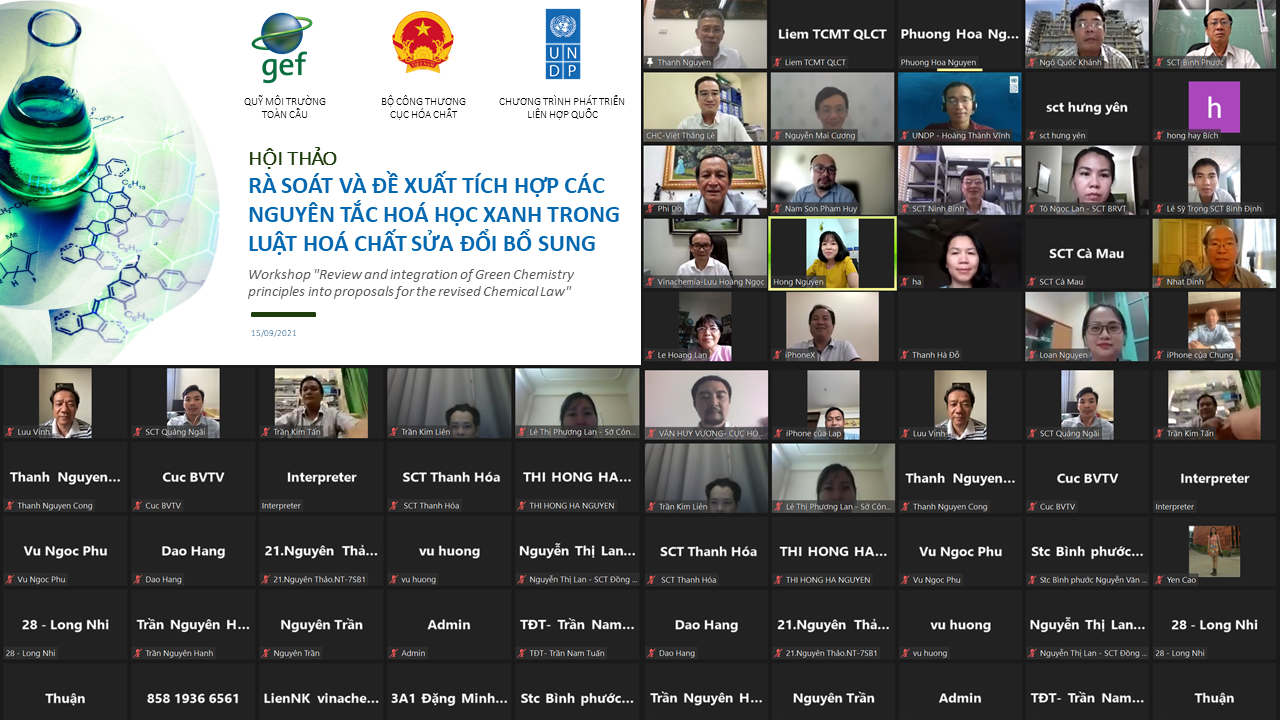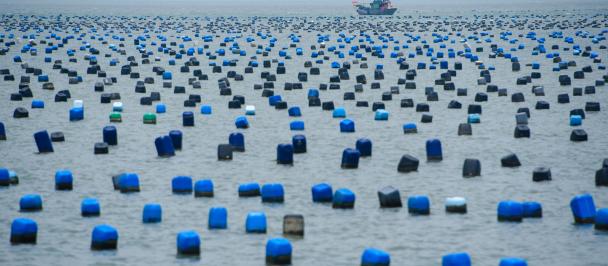Written by: Phan Huong Giang, Nguyen Phuong Hoa. Photo: Nguyen Phuong Hoa
The Viet Nam Chemicals Agency (Ministry of Industry and Trade) and the United Nations Development Programme (UNDP) have recently organised a virtual workshop on “Review and integration of Green Chemistry principles into proposals for the revised Chemical Law”. The workshop was an activity under the "Application of Green Chemistry in Viet Nam to Support Green Growth and Reduction in the Use and Release of POPs/Harmful Chemicals" project funded by the Global Environment Facility (GEF).
Propose to review the Chemical Law
According to Mr. Nguyen Van Thanh, Director General of the Viet Nam Chemicals Agency (VINACHEMICA), Chemical Law No. 6/2007/QH12 was approved by the 12th National Assembly on 21 November 2007. It came into effect on 1 July 2008. The law was an important milestone in creating an official and unified legal framework for using chemicals across the country.
After 13 years into effect, along with the rapid change in socio-economic context, the Chemical Law has shown some limitations and drawbacks, so it needs to be revised and improved to fit the current situation better and help increase efficiency in chemical management at the national level.
Speaking at the workshop, Mr. Patrick Haverman, UNDP Viet Nam Deputy Resident Representative, highlighted that "there are some proposals on green chemistry integration to be included the revised Law such as the definition of Green Chemistry term; elaboration of 12 green chemistry principles in specific chapters, articles and clauses of the Law; and incentive scheme for the application of green chemistry in enterprises."
Mr. Pham Huy Nam Son (VINACHEMICA), one of the project’s experts, said that chemicals on the control list need to be monitored throughout their entire life cycle, from import, production, transportation, storage, use in the product to disposal of waste. It is crucial to improve the effectiveness of the control and supervision process after the chemical is licensed.
"On that basis, we need to decide the detailed responsibility of organisations, individuals importing and producing chemical products have to consumers, in terms of providing information on the possible risks," shared a representative of VINACHEMICA.
The administrative procedures for chemical activities need to be synchronized and systematized in terms of lists of chemicals, purposes, management expenditures, and procedures' strictness. Besides, there is a need for re-designing, upgrading the national chemical database, collecting data on chemical activities from all sources, analyzing information to assist in monitoring the strict implementation of the requirements in permits and certificates, and supporting risk assessment and suggesting the management order of chemicals to suit the available resources.
Accordingly, the national chemical database should be a channel to share information provided by chemical manufacturers and importers to consumers and the community.
Towards green growth criteria and sustainable development
Regarding the application of Green Chemistry in Viet Nam to support green growth, according to the leader of VINACHEMICA, it is necessary to develop strict regulations on chemicals management throughout their life cycle (import, export, production, trading, transportation, use, disposal) in accordance with current chemical activities in Viet Nam, international practices, present trends in chemical management in the world, and international treaties and conventions in which Vietnam participates. We should continue to strengthen inter-sectoral and central-local coordination in chemical management.
In addition, the revised Chemical Law will integrate the 12 principles of Green Chemistry in the revised Chemical Law to develop the sustainable chemical industry in Viet Nam. It also encourages green and eco-friendly chemical production processes and products and limits harmful chemicals' production and use.
Accordingly, the revised Chemical Law must be formulated in the right spirit to ensure that it fits the situation in Viet Nam and international practices. It is vital to improving the chemical industry's competitiveness while ensuring the effectiveness of state-level chemical management and the safety of people, infrastructures, ecosystems, and the environment towards sustainable development.

 Locations
Locations



